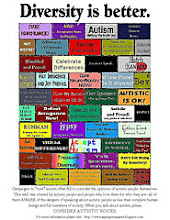Superflex – is this a good program for my child?
by Stephanie Madrigal and Michelle Garcia Winner
Comic Book by Stephanie Madrigal/Illustrated by Kelly Knopp
Superflex is a behavioral program that addresses some of the behavioral and psychological issues that our children struggle with on a daily basis. There could be a number of different ways of explaining this program. The authors describe it as follows:-
Superflex®: A Superhero Social Thinking Curriculum provides educators, parents and therapists fun and motivating ways to teach students with Asperger Syndrome, high-functioning autism, ADHD and other diagnosed and undiagnosed social difficulties how to build social thinking skills. Superflex combines a book, comic book and CD to create a curriculum that develops in each student's brain their own superheroic thinking processes that can overcome the challenges in different social situations that arrive across the school and home day.
Most of us can identify a number of behaviors that are commonplace amongst our children, which may be broadly identified as inflexible and can often become major hurdles to address on a daily basis. They are often the cause of a great deal of unhappiness and angst. Rigid behavioral responses can be a significant barrier to living a full and enjoyable life. Due to copyright issues I won’t reproduce or explain the main role of the different characters involved in Superflex and the rogues who attack him, the Unthinkables, but once they have been mastered [over many weeks if not months] then it is entirely possible to invent characters who more exactly match other situations, more finely tailored to our own children.
Around here it’s a question of recognizing our own intolerance of some issues. To take a handy example we could tackle the matter of hygiene – my unwashed, filthy hands and revolting personal habits, do not spread germs nor make you ill, but you are oblivious to your own runny nose which will surely kill me. If we can both learn to recognize how our respective behaviors affect each other, then that’s progress - we need that recognition. That’s part of the flexible thinking approach. Then we move on to look for strategies to alleviate the situation.
Another [local] example would be how you cannot stand the smell of bananas, my favorite snack, but I will retch at the stench of Jif, peanut butter, your favorite snack. You need to understand that I will die, now, if I can’t banana. I don’t care how much you want to eat peanut better – it’s disgusting. Bit of an impasse really since we live in the same house and eat together in the same room. The solution is simple – you go and live somewhere else and eat your disgusting food out of my sensory range. Pity your solution is the same for me. We need a different tactic. I recognize my own feelings and someone might point out that your feelings are an exact match. It’s a startling realization. Then, it’s only a few small steps to think up different ways of dealing with the problem and finding a compromise. From that point, it’s then much easier to extrapolate from that one situation to extend it to other similar situations, especially when they are successful experiences. Unlikely as it may seem, flexibility and tolerance can be learned.
Your children may not be ready for this yet, just as mine weren’t in earlier years, but it’s always a good idea to look ahead. You can buy it at Amazon.http://www.amazon.com/Superflex-Superhero-Social-Thinking-Curriculum/dp/0979292247/ref=sr_1_1?ie=UTF8&s=books&qid=1284309692&sr=8-1







2 comments:
Nice post.Keep sharing. Thanks
An absolutely unique and fine piece of information. clipping path service
Photo Retouching Services
Background Removal Service
Post a Comment